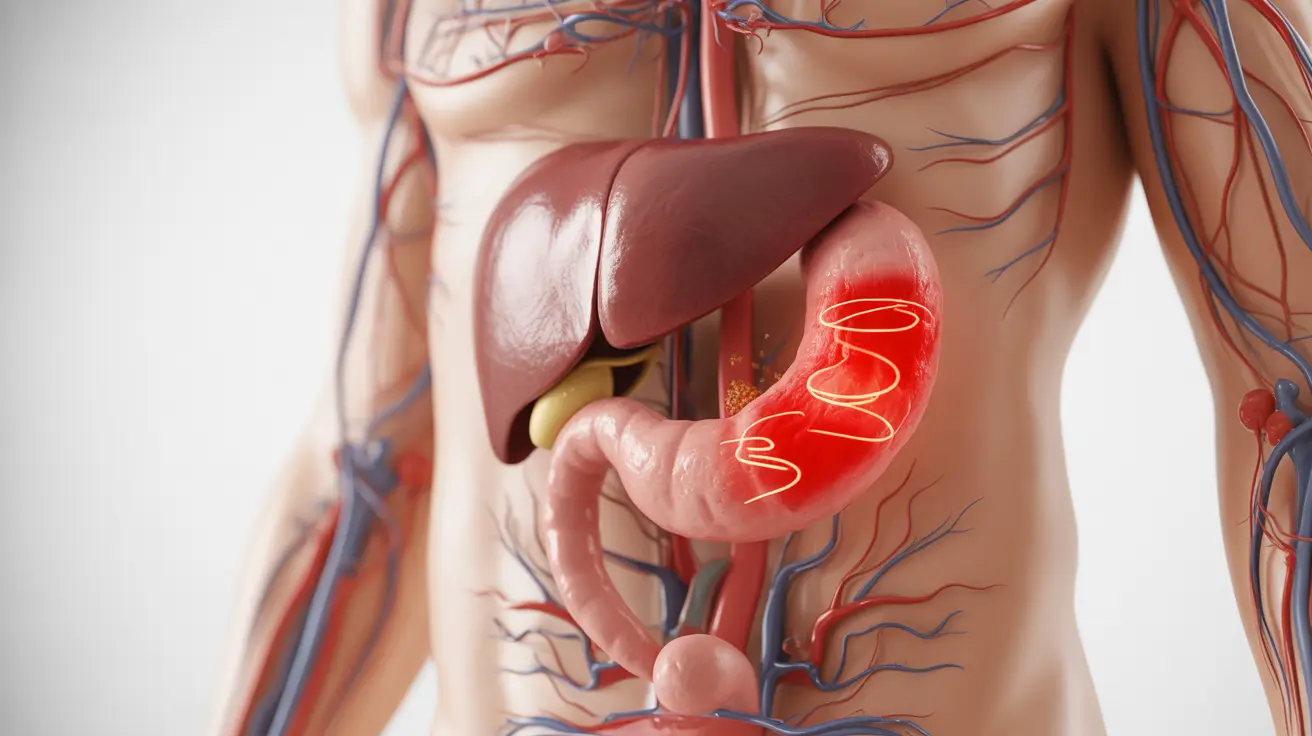If you've ever experienced severe abdominal pain during a stressful period, you might wonder if there's a connection between stress and appendicitis. While stress can affect many aspects of our health, it's important to understand the real relationship between stress and this serious medical condition.
Let's explore the facts about appendicitis, its true causes, and how stress might play a role in our overall digestive health. Understanding these relationships can help you better recognize when to seek medical attention and maintain your overall well-being.
What is Appendicitis and What Really Causes It?
Appendicitis is the inflammation of the appendix, a small, finger-shaped pouch attached to the large intestine. The primary causes of appendicitis typically include:
- Blockage of the appendix opening
- Bacterial infection
- Inflammatory bowel disease
- Trauma to the abdomen
- Presence of hard stool or foreign objects
While stress isn't a direct cause of appendicitis, understanding the actual triggers helps distinguish between stress-related stomach issues and true appendicitis symptoms.
Recognizing Appendicitis Symptoms vs. Stress-Related Pain
It's crucial to differentiate between appendicitis and stress-induced stomach pain, as appendicitis requires immediate medical attention. Here are the key characteristics of appendicitis:
Classic Appendicitis Symptoms
- Sharp pain starting near the navel and moving to the lower right abdomen
- Severe pain that worsens with movement
- Fever and chills
- Nausea and vomiting
- Loss of appetite
- Constipation or diarrhea
Stress-Related Stomach Pain
In contrast, stress-related stomach pain typically:
- Comes and goes with stress levels
- May affect different areas of the abdomen
- Usually improves with stress relief
- Rarely includes fever
- Often accompanies other stress symptoms like headaches or fatigue
The Indirect Impact of Stress on Digestive Health
While stress doesn't directly cause appendicitis, chronic stress can affect your digestive system in several ways:
- Weakened immune system function
- Increased inflammation throughout the body
- Altered gut bacteria balance
- Changes in digestive movements and secretions
- Reduced blood flow to digestive organs
Diagnosis and Treatment Approaches
If you're experiencing severe abdominal pain, doctors will perform several tests to determine if it's appendicitis, regardless of your stress levels:
- Physical examination
- Blood tests to check for infection
- Imaging tests (CT scan or ultrasound)
- Urine tests to rule out other conditions
Treatment for confirmed appendicitis typically involves surgical removal of the appendix (appendectomy), while stress-related digestive issues are managed through stress reduction techniques and lifestyle changes.
Preventive Measures and Lifestyle Considerations
While you can't completely prevent appendicitis, you can maintain good digestive health through:
- Regular exercise
- Balanced, fiber-rich diet
- Proper hydration
- Stress management techniques
- Regular health check-ups
- Good hygiene practices
Frequently Asked Questions
Can stress directly cause appendicitis, or is it just a myth? Stress cannot directly cause appendicitis. Appendicitis is primarily caused by physical factors like blockages or infections of the appendix. However, chronic stress can affect overall digestive health and immune function.
What are the main symptoms of appendicitis, and how can I tell if it's not just stress-related stomach pain? Appendicitis typically causes severe pain that starts near the belly button and moves to the lower right abdomen, along with fever, nausea, and loss of appetite. Stress-related pain is usually less severe, more diffuse, and fluctuates with stress levels.
Does chronic stress make me more likely to develop appendicitis, even though it's not a direct cause? While chronic stress doesn't directly increase appendicitis risk, it can weaken your immune system and affect digestive health, potentially making you more susceptible to various health issues, including infections.
How is appendicitis diagnosed and treated if doctors suspect it, especially if stress symptoms are similar? Doctors use a combination of physical examination, blood tests, and imaging studies (CT scan or ultrasound) to diagnose appendicitis. If confirmed, appendectomy surgery is typically necessary, regardless of stress levels.
What are the best lifestyle changes to support gut and immune health, and could these help lower the risk of appendicitis? Maintaining a healthy diet, staying hydrated, exercising regularly, managing stress, and practicing good hygiene can support overall gut and immune health. While these habits won't prevent appendicitis entirely, they contribute to better overall health.




